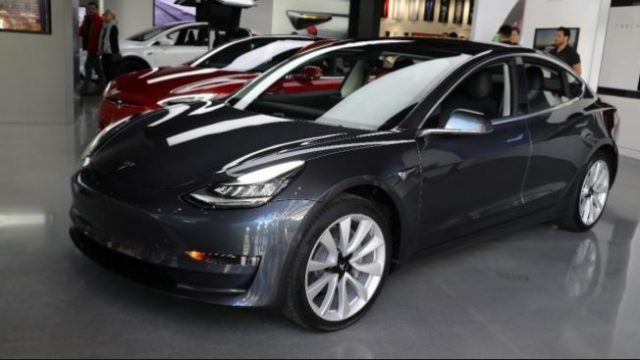Escalating trade tensions between the United States and China may dent production of German luxury SUVs made in the U.S. South and sent to China, with exports from electric vehicle maker Tesla Inc and Ford Motor Co also vulnerable.
If a tit-for-tat tariff dispute between the two countries erupts into a full-blown trade war, auto production in both will be affected, but U.S. factories would feel the strongest effect because China imports nearly 270,000 U.S. vehicles, worth $11 billion, and sends relatively few back.
Tesla’s California plant, which ships an estimated 15,000 cars a year to China, as well as BMW’s South Carolina facility and Daimler AG’s Alabama factory, could lose hundreds of millions of dollars’ worth of production if China goes ahead with its threat to double import tariffs. All three export high-margin luxury models, many of them sport utility vehicles, to China.
Ford’s problem is twofold, involving both imports of premium Lincoln vehicles to China and a plan to export low-cost Focus compacts from China to the United States.
General Motors Co’s exposure is limited because it imports only 30,000 Buick Envision crossovers a year from China, while sending just a handful of vehicles back.
Shares of automakers ended higher on Wednesday as Wall Street stocks changed course in the afternoon when investors’ trade fears subsided. Tesla shares closed 7.3 percent higher at $286.94, Ford shares gained 1.6 percent to close at $11.33, and GM shares were up 3 percent at $38.03.
Barclays auto analyst Brian Johnson, in an investor note on Wednesday, predicted that Tesla “would bear the brunt of any increased auto tariff on a relative basis,” with China accounting for 17 percent of the company’s revenue.
The United States has a 60-day comment period on plans, and China is waiting for U.S. action before implementing its own. A Washington-based source close to one of the automakers called the moves “a posturing exercise by both countries (and) part of a process” that will play out over the next two months.
China has threatened to double tariffs to 50 percent on imported automobiles and other U.S.-made goods to retaliate against the Trump administration’s proposed tariffs on a broad range of products, including vehicles and automotive parts.
The proposed U.S. tariffs on Chinese-made vehicles could affect Ford’s plans to shift production of the compact Focus next year from Michigan to China, a move the company said last year would save it $500 million.
The Lincoln brand meanwhile is struggling to gain traction in China’s crowded luxury car market. Ford has said it ships about 80,000 vehicles a year to China, including various Lincoln models.
Ford declined to comment specifically on plans for the Focus and Lincoln. It said in a statement on Wednesday: “We encourage both governments to work together to resolve issues between these two important economies.”
A Mercedes-Benz spokesman said the company does not speculate on ongoing negotiations, adding that it is “monitoring the situation closely.”
BMW said in a statement: “A further escalation of the trade conflict between the U.S. and China would be harmful for all stakeholders.”
Tesla declined to comment. A spokesman for the United Auto Workers union, which represents workers at Ford and GM, but not at Tesla, BMW and Mercedes-Benz, declined to comment.
GM said on Wednesday it is “too early” to say how the Trump administration’s proposed tariffs will impact its future production plans for the Envision.
Chinese vehicle imports from all markets last year climbed to 1.2 million, according to the China Automobile Dealers Association. Less than a quarter of those – 267,473, according to Statista – came from U.S. auto plants, including 100,000 from BMW’s South Carolina factory.
Decisions on whether and where to shift vehicle production could be complicated by U.S. President Donald Trump’s moves to significantly revamp or withdraw from the North American Free Trade Agreement that allows tariff-free shipments of vehicles to the United States from Mexico and Canada. —Paul Lienert and Norihiko Shirouzu










